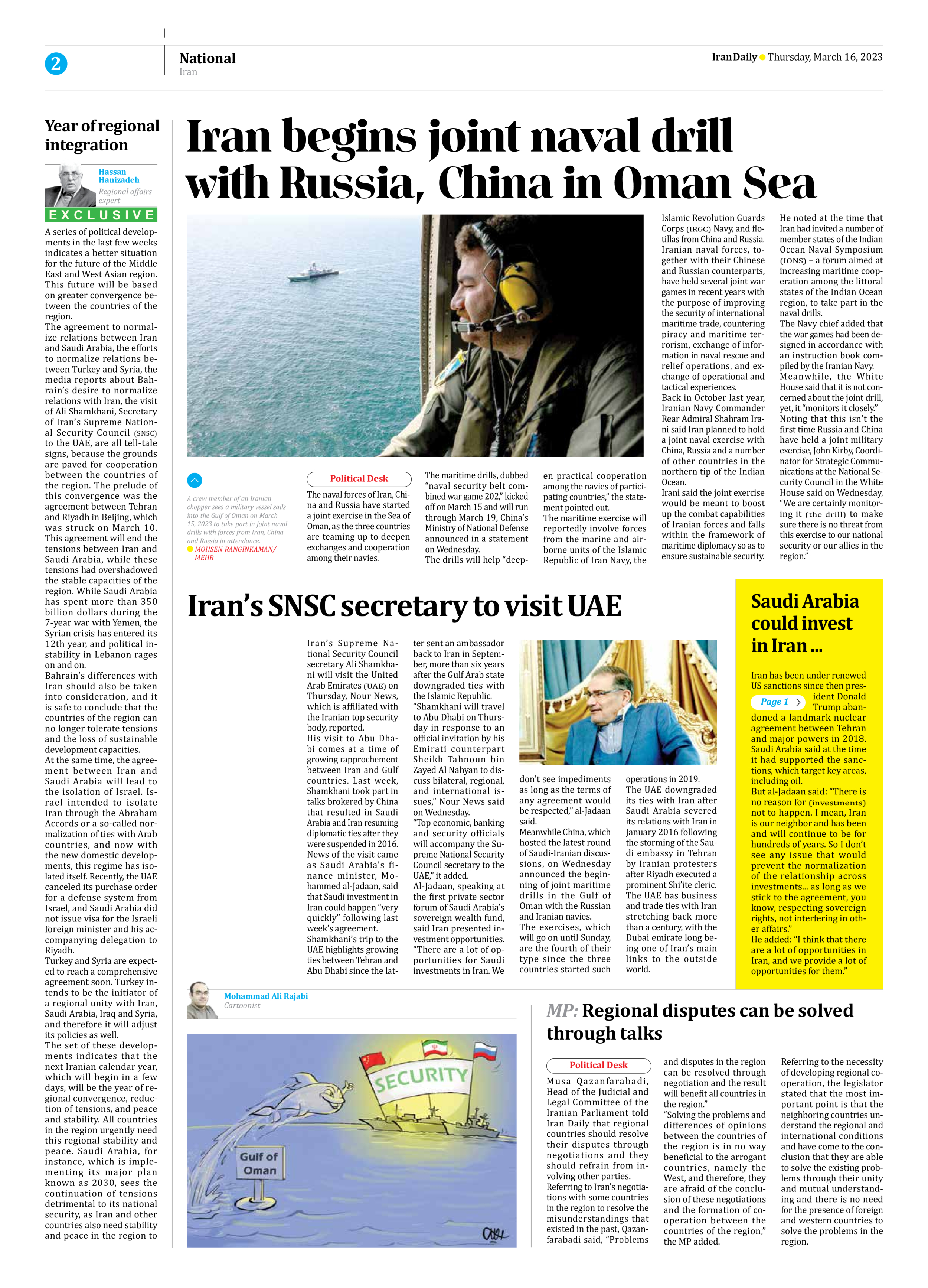
Iran begins joint naval drill with Russia, China in Oman Sea
The naval forces of Iran, China and Russia have started a joint exercise in the Sea of Oman, as the three countries are teaming up to deepen exchanges and cooperation among their navies.
The maritime drills, dubbed “naval security belt combined war game 202,” kicked off on March 15 and will run through March 19, China’s Ministry of National Defense announced in a statement on Wednesday.
The drills will help “deepen practical cooperation among the navies of participating countries,” the statement pointed out.
The maritime exercise will reportedly involve forces from the marine and airborne units of the Islamic Republic of Iran Navy, the Islamic Revolution Guards Corps (IRGC) Navy, and flotillas from China and Russia.
Iranian naval forces, together with their Chinese and Russian counterparts, have held several joint war games in recent years with the purpose of improving the security of international maritime trade, countering piracy and maritime terrorism, exchange of information in naval rescue and relief operations, and exchange of operational and tactical experiences.
Back in October last year, Iranian Navy Commander Rear Admiral Shahram Irani said Iran planned to hold a joint naval exercise with China, Russia and a number of other countries in the northern tip of the Indian Ocean.
Irani said the joint exercise would be meant to boost up the combat capabilities of Iranian forces and falls within the framework of maritime diplomacy so as to ensure sustainable security.
He noted at the time that Iran had invited a number of member states of the Indian Ocean Naval Symposium (IONS) – a forum aimed at increasing maritime cooperation among the littoral states of the Indian Ocean region, to take part in the naval drills.
The Navy chief added that the war games had been designed in accordance with an instruction book compiled by the Iranian Navy.
Meanwhile, the White House said that it is not concerned about the joint drill, yet, it “monitors it closely.”
Noting that this isn’t the first time Russia and China have held a joint military exercise, John Kirby, Coordinator for Strategic Communications at the National Security Council in the White House said on Wednesday, “We are certainly monitoring it (the drill) to make sure there is no threat from this exercise to our national security or our allies in the region.”







